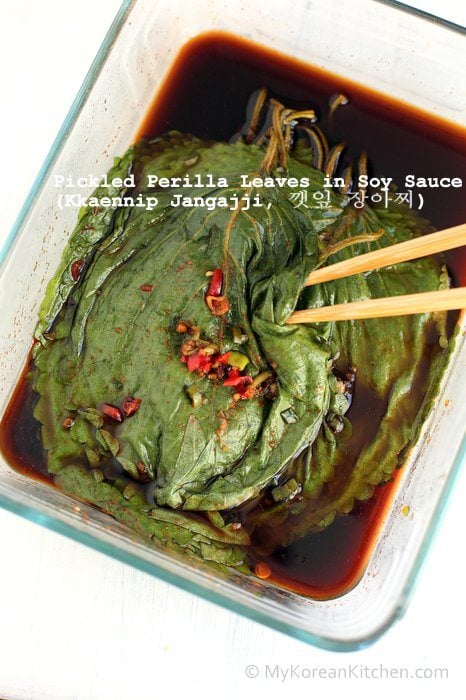Jangajji
장아찌
Jangajji or pickled vegetables is a type of banchan (side dish) made by pickling vegetables. Unlike kimchi, jangajji is non-fermented vegetables, usually pickled in soy sauce, soybean paste, or chili paste. Jangajji dishes are usually preserved for a long period of time, and served with a drizzle of sesame oil. Preserved foods like jangajji were developed to attain a certain level of vegetable consumption during the long, harsh winters on the Korean peninsula.
Source: Wikipedia
Recipes

Green chili pepper pickles (Gochu-jangajji) recipe by Maangchi
This is one of my most favorite kinds of jangajji (Korean pickles). It's made with green chili peppers and tastes salty, sour, spicy, and a little sweet. It's very crispy and crunchy. Biting into a pickled pepper with a spoonful of warm rice and having...

Perilla leaf pickles (Kkaennip-jangajji) recipe by Maangchi
(The other recipe in this video is Kkaennip-kimchi) Kkaennip are one of my favorite vegetables. They have a unique flavor and are used for so many Korean dishes. They're also easy to grow! Ingredients. 1 pound of perilla leaves (about 450 grams) soy sauce...

Dubu-jangajji (Tofu pickles) recipe by Maangchi
Hi everybody! I'm introducing another delicious tofu recipe to you today. It's very juicy and delicious. I didn't use any chili peppers or powder, so it will be a good side dish for children or those who can't tolerate spicy food. Yes, I'm a spicy food...

Maneul Jangajji—Korean Pickled Garlic - Chefs Society
Maneul Jangajji / Photo Credit: ddanzi.com Maneul Jangajji is a popular form of Jangajji, a type of Korean banchan (side dish) that refers to pickled vegetables prepared in many styles using a variety of ingredients. Maneul means garlic in Korean, and...
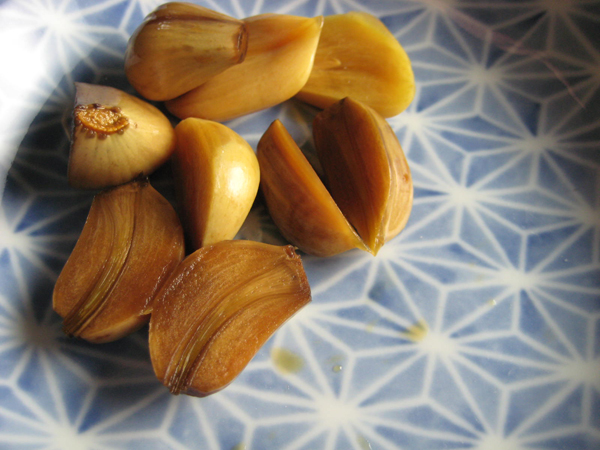
Manil Jangatchi (Pickled garlic cloves) and Giveaway Winners - kimchi MOM ™
The summer after I graduated college, I enrolled in a language program at Yonsei University, i.e. party time in Seoul. It was quite a summer and while I did return home speaking Korean fluently, it was not because I went to class everyday (I did), but...
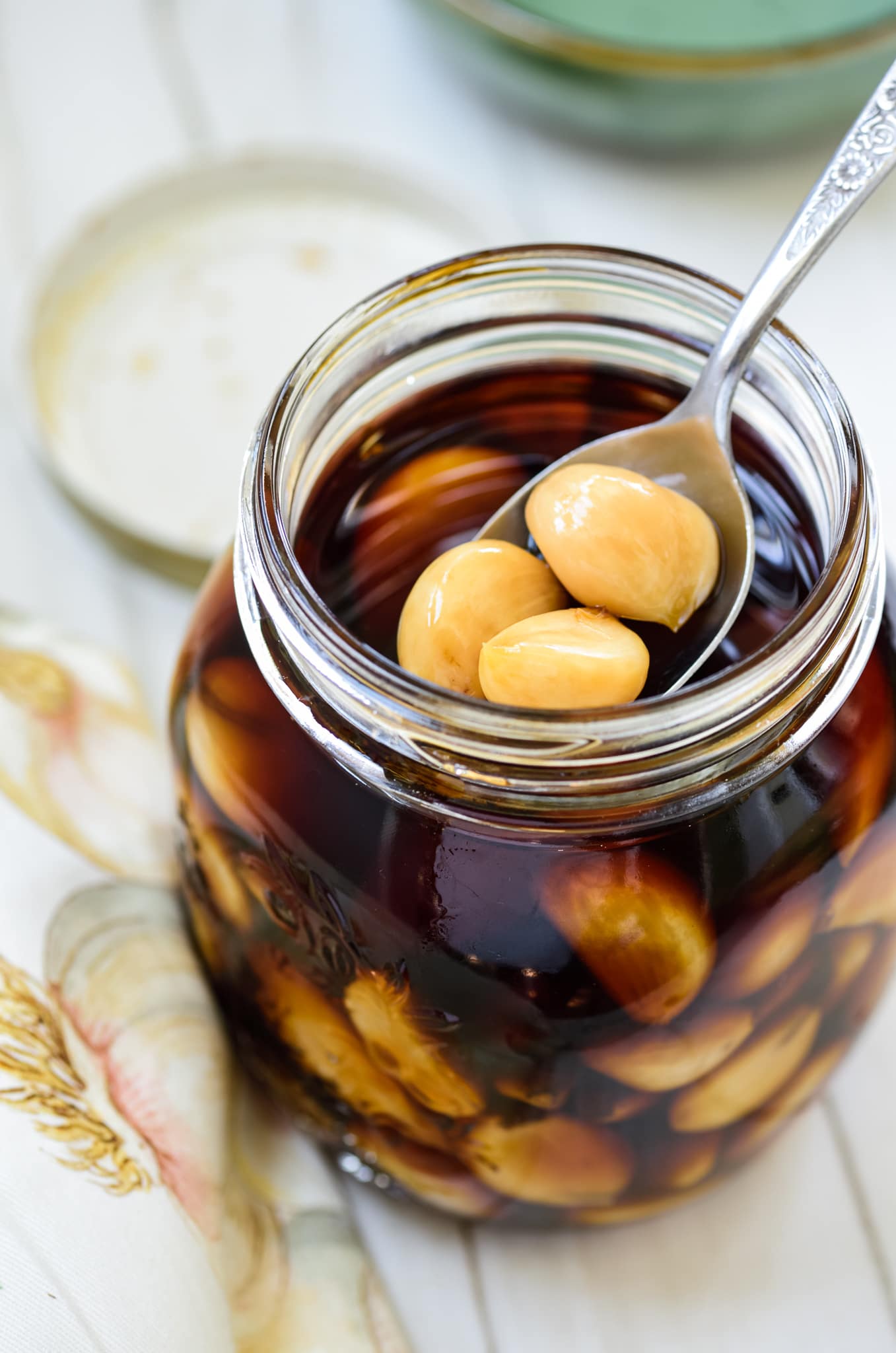


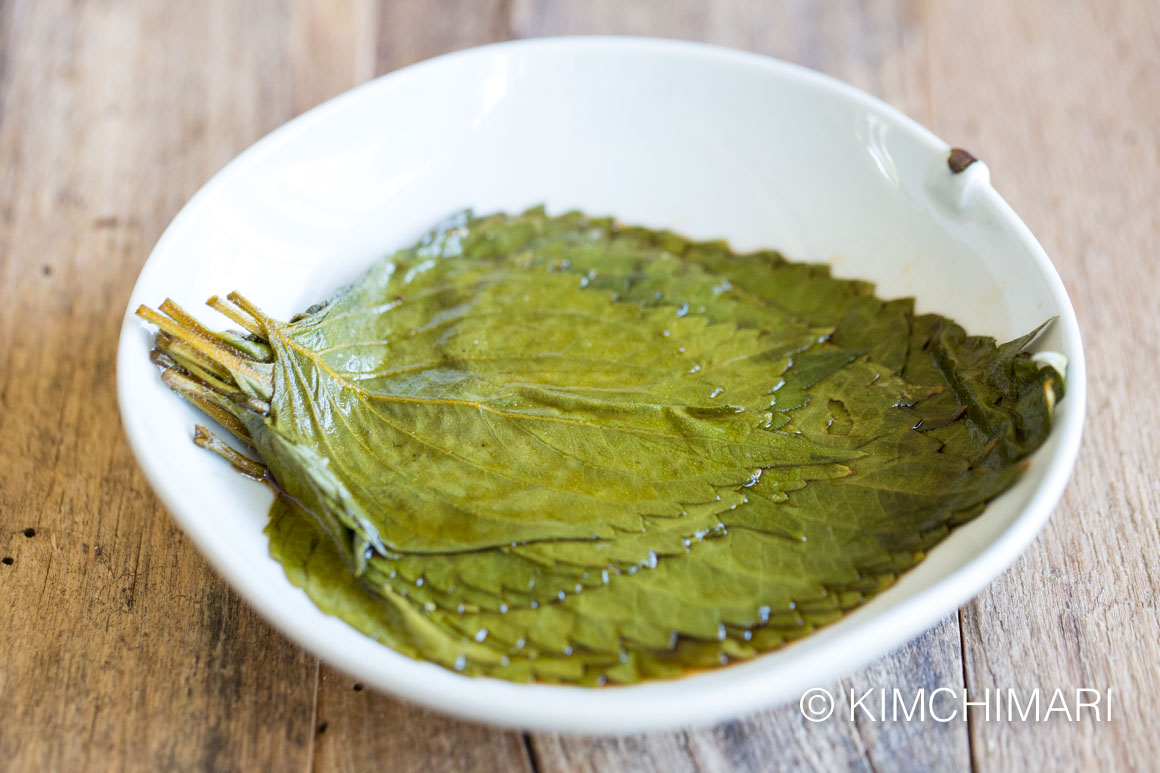
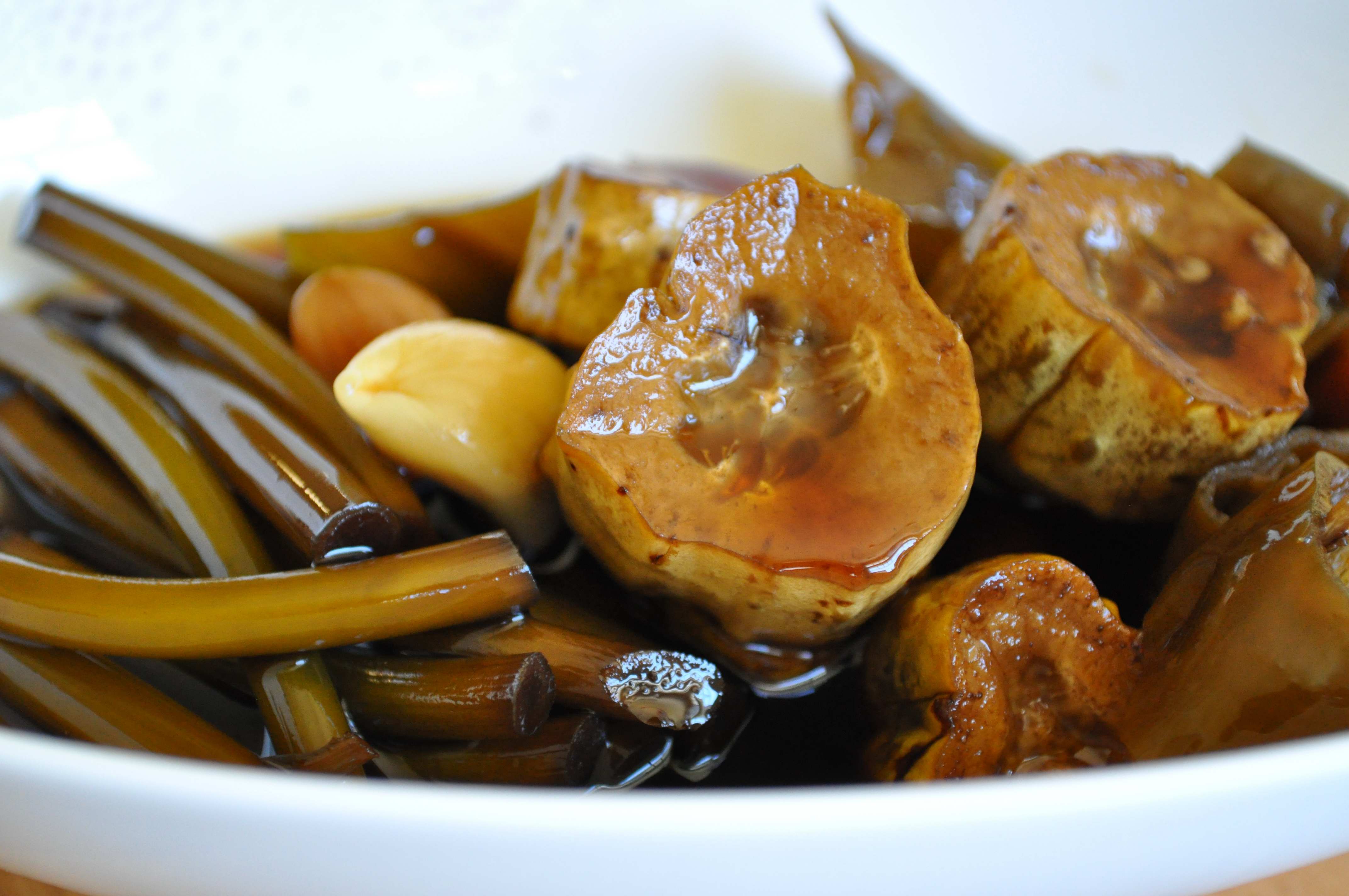

:max_bytes(150000):strip_icc()/korean-pickled-garlic-2118848-hero-02-297cdb9bcabf4286a2e1cc7692a2fb8c.jpg)


